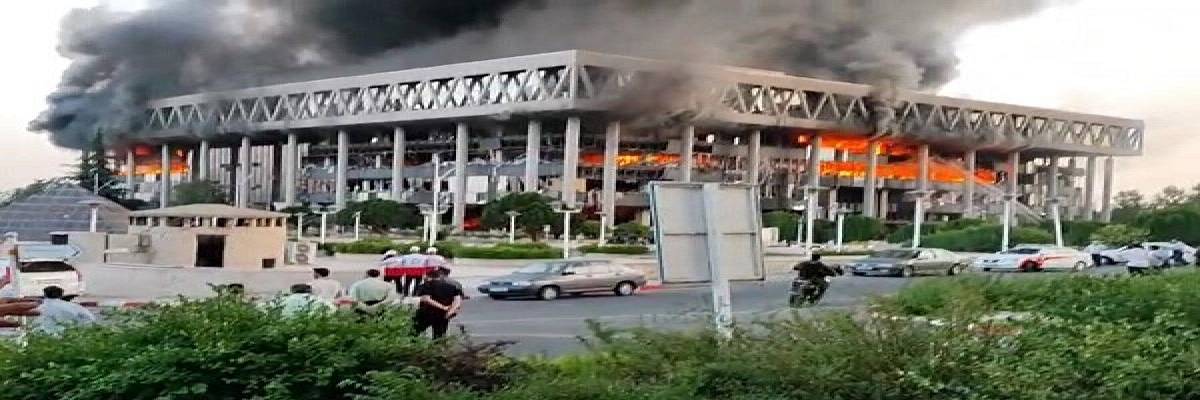1241 Views
Israel’s Media Terror: Bombing IRIB Exposes Its Fear of Iran’s Narrative
Since the beginning of Israel’s aggression against the Islamic Republic of Iran, despite its claims that this war is solely aimed at countering Iran’s nuclear threat, the regime’s actions and crimes reveal an all-out assault not just on Iran—but on humanity itself. A symbolic example of this desperate strategy was the Israeli strike on the studio of Iran’s IRINN (Islamic Republic of Iran News Network).
The Israel’s regime, notorious for its long history of suppressing and killing journalists across the globe, once again exposed its brazenness. In a wholly inhumane and irresponsible act that blatantly violates international law, the Zionist regime launched a violent attack on the building of the Islamic Republic of Iran Broadcasting (IRIB). This move, not unprecedented for Israel, directly violates Article 8 of the Rome Statute and Article 79 of the First Additional Protocol to the Geneva Conventions—both of which define media workers and journalists as civilian, non-combatant entities. Targeting them deliberately constitutes a war crime. Yet, as always, this act was met with deafening silence from the West and another instance of deliberate blind-eye diplomacy.
This attack was a clear attempt to silence an independent and free flow of information. It sends a chilling message: if you oppose their narrative, you risk threats, harm, or even missile strikes. It also marks a psychological warfare tactic—a pressure campaign aimed at swaying public opinion, fostering fear, and manufacturing discontent to corner the government into capitulation. But this ploy seems to have fallen flat.
Analysts believe this desperate act stems from Israel’s failure to achieve tangible battlefield objectives and its recent intelligence defeats. The regime appears to be shifting the war into the media domain, striking visible blows at Iran’s communications infrastructure to mask its shortcomings and losses. Israel clearly did not anticipate Iran’s robust and calibrated response—and now, under pressure, it is grasping for symbolic "wins" even through war crimes.
What must not be overlooked is the dangerous precedent this attack sets. If left unchallenged, such actions may normalize targeting media infrastructure in other regions as well. Israel, emboldened by the absence of firm international condemnation and free from consequences, is taking increasingly reckless steps in defiance of international law. These repeated violations severely undermine the authority of global institutions. The West’s double standards—its silence in the face of such crimes—will undoubtedly backfire one day.
Equally troubling is the erosion of Europe’s position as a pillar of international law. The European Union, through its dual standards, has effectively lost its credibility as a defender of human rights. Not only did it fail to condemn Israel’s attacks on Iranian civilian facilities, it also stayed silent on this war crime—the missile strike on a state media building. This silence amounts to the final blow to Europe’s already fading moral standing in international law.
Particular attention must be paid to Israel’s justification for this attack. Claiming that IRIB supports or is affiliated with the IRGC (Islamic Revolutionary Guard Corps) is a dangerous precedent. Following this logic, hospitals, which may treat military personnel, could be deemed legitimate targets. Ambulances, rescue workers, water supply systems, and civilian infrastructure could all be declared military objectives. This twisted rationale is a dire warning. Iran’s diplomatic and media institutions must urgently alert the world to this mindset and its consequences. Because Israel has proven that human life means little in its calculus—it will stop at nothing to achieve its objectives, just as it bombed a fully civilian media center in Iran, and hospitals in Gaza.
*Translated by Ashraf Hemmati from the original Persian article written by Amin Mahdavi

Comment
Post a comment for this article